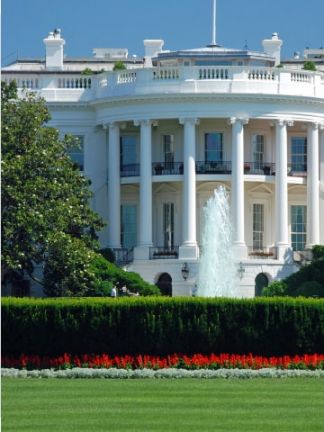The Solution to Detroit’s Corruption Scheme is Less Government

Published in Issues - 3 mins - Mar 30
The Solution to Detroit’s Corruption Scheme is Less Government
This article was featured in our weekly newsletter, the Liberator Online. To receive it in your inbox, sign up here. Certain municipalities in the United States look a lot like South America these days. According to a CBS affiliate, the public school system in Detroit is facing bribery and fraud charges associated with some of its current and former principals. Two months ago, ex-principal Kenyetta Wilbourn Snapp—also from Detroit—pleaded guilty after being accused of pocketing a $58,050 bribe from a local vendor. She was sentenced to 46 months in prison. Paulette Horton, a 60-year-old consultant, also admitted to being part of the scheme. She allegedly played the part of the middleman between Snapp and other contractors and vendors seeking to seal deals with Detroit’s public schools.
The most recent corruption case involves 12 principals, a school district vendor, and an administrator. They are all being accused of participating in corruption schemes involving payments in exchange for exclusive contracts between businesses and public schools.
The legal charges were brought against the educators by the federal government. US Attorney Barbara McQuade, along with other FBI and IRS officials, made a public statement about the case on Tuesday. During the press conference, she claimed that the corruption case is a “punch in the gut.”
If the legal charges tied to the latest corruption case stick, suspects would be implicated in a nearly $1 million bribery and kickback scheme.
Detroit Free Press explains that the legal ordeal revolves around Norman Shy, a 74-year-old businessman who’s being accused of paying $908,500 in kickbacks and bribes to 12 Detroit Public School principals. These same schools used Shy as their school supply vendor for the last 13 years. The exclusivity deals with Shy helped him milk $2.7 million from Detroit’s public schools over the years. According to prosecutors, Shy kept the contracts going thanks to his personal transactions with school principals.
Recently, Michigan legislators passed a bill securing $48.7 million to the Detroit Public School (DPS) system, ensuring local schools wouldn’t run out of cash. To Speaker of the House Kevin Cotter, a Republican from Mt. Pleasant, the state should pass “strong financial and academic reforms” as “a part of any long-term solution to decades of DPS failures.” But unless the root of corruption is unmasked, and legislators finally admit that the very existence of government regulations is why corruption continues to take place, any reform will only lead to a momentary—and feeble—solution.
In a piece for Mises.org, David R. Henderson explains that “the reason so much corruption occurs in government is that government officials hand out so much in the form of subsidies, tax breaks, permits and regulatory exceptions.” Having power to make decisions for others while nobody’s watching makes corruption more likely to occur. To Henderson, this is the main reason why “private corruption often occurs in corporate purchasing departments.”
If federal prosecutors and Michigan legislators are serious about tackling this issue and putting an end to corruption, they must first focus on putting an end to favoritism. And the only day of accomplishing that is by reducing government grant giving.
Fixing Detroit’s corruption disease will involve a great deal of courage, especially when you consider that the government would have to relinquish control over the economy and education so the incentives are removed from the equation. As Henderson explained, the “sure cure for corruption is to reduce or even eliminate official power over the economy.”
Two months ago, ex-principal Kenyetta Wilbourn Snapp—also from Detroit—pleaded guilty after being accused of pocketing a $58,050 bribe from a local vendor. She was sentenced to 46 months in prison. Paulette Horton, a 60-year-old consultant, also admitted to being part of the scheme. She allegedly played the part of the middleman between Snapp and other contractors and vendors seeking to seal deals with Detroit’s public schools.
The most recent corruption case involves 12 principals, a school district vendor, and an administrator. They are all being accused of participating in corruption schemes involving payments in exchange for exclusive contracts between businesses and public schools.
The legal charges were brought against the educators by the federal government. US Attorney Barbara McQuade, along with other FBI and IRS officials, made a public statement about the case on Tuesday. During the press conference, she claimed that the corruption case is a “punch in the gut.”
If the legal charges tied to the latest corruption case stick, suspects would be implicated in a nearly $1 million bribery and kickback scheme.
Detroit Free Press explains that the legal ordeal revolves around Norman Shy, a 74-year-old businessman who’s being accused of paying $908,500 in kickbacks and bribes to 12 Detroit Public School principals. These same schools used Shy as their school supply vendor for the last 13 years. The exclusivity deals with Shy helped him milk $2.7 million from Detroit’s public schools over the years. According to prosecutors, Shy kept the contracts going thanks to his personal transactions with school principals.
Recently, Michigan legislators passed a bill securing $48.7 million to the Detroit Public School (DPS) system, ensuring local schools wouldn’t run out of cash. To Speaker of the House Kevin Cotter, a Republican from Mt. Pleasant, the state should pass “strong financial and academic reforms” as “a part of any long-term solution to decades of DPS failures.” But unless the root of corruption is unmasked, and legislators finally admit that the very existence of government regulations is why corruption continues to take place, any reform will only lead to a momentary—and feeble—solution.
In a piece for Mises.org, David R. Henderson explains that “the reason so much corruption occurs in government is that government officials hand out so much in the form of subsidies, tax breaks, permits and regulatory exceptions.” Having power to make decisions for others while nobody’s watching makes corruption more likely to occur. To Henderson, this is the main reason why “private corruption often occurs in corporate purchasing departments.”
If federal prosecutors and Michigan legislators are serious about tackling this issue and putting an end to corruption, they must first focus on putting an end to favoritism. And the only day of accomplishing that is by reducing government grant giving.
Fixing Detroit’s corruption disease will involve a great deal of courage, especially when you consider that the government would have to relinquish control over the economy and education so the incentives are removed from the equation. As Henderson explained, the “sure cure for corruption is to reduce or even eliminate official power over the economy.”

Alice
Author
Advocates for Self-Government is nonpartisan and nonprofit. We exist to help you determine your political views and to promote a free, prosperous, and self-governing society.
What do you think?
Did you find this article persuasive?
Unpersuasive
Neutral
Very Persuasive
Subscribe & Start Learning
What’s your political type? Find out right now by taking The World’s Smallest Political Quiz.

























